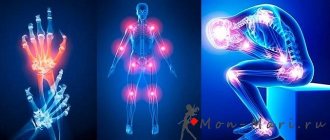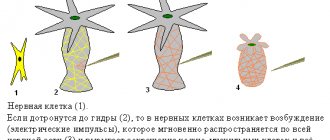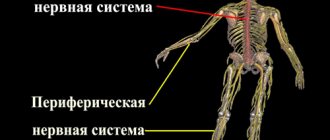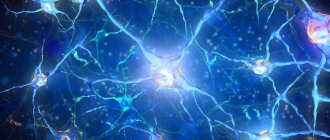Three main properties of the nervous system allow us to distinguish several types of nervous system. The following properties influenced the formation of this typology:
- Strength of inhibition and excitation;
- Mobility of inhibition and excitation processes;
- Balanced nervous processes.
These properties made it possible to form a certain typology, on the basis of which it is possible to distinguish types of the human nervous system.
Types of the human nervous system according to Pavlov
In modern science, there are several systems that form the types of nervous system. Pavlov's typology is considered the most popular. Since, when developing his typology, he relied precisely on those properties that are indicated above. This allowed the scientist to create a clear system in which obvious differences between types can be traced.
In higher science, the types of the human nervous system are called types of higher nervous activity. The typology is based on the differences between the complexes of basic acquired and innate properties of the nervous system. Human behavior depends on the type of nervous system. Therefore, people with a common type have similar actions and reactions.
TYPES OF NERVOUS SYSTEM
TYPES OF THE NERVOUS SYSTEM (types of higher nervous activity), complex basic. congenital and acquired individual properties of the nervous system of animals and humans, determining differences in behavior and attitude to the same environmental influences. The concept of T.n. With. introduced by I. P. Pavlov (1927). He identified three main ones. properties of nervous processes (excitation and inhibition): strength, balance of the processes of excitation and inhibition and their mobility (speed of transition from one state to another). There are 4 main types. The strong unbalanced type is characterized by the rapid development of positive (excitatory) conditioned reflexes (CR), while inhibitory RC are formed with great difficulty; In animals of this type, vegetative functions after their disruption are restored for a long time and unevenly. A strong, balanced inert type is characterized by the slow formation of positive and inhibitory UR, which means that after consolidation into a certain stereotype, the UR is retained. sustainability; reactions of adaptation and restoration of vegetative processes proceed slowly. In a strong, balanced, mobile type, positive and inhibitory URs are quickly formed and easily transformed when the stimulus changes; Animals of this type are characterized by easy adaptability of vegetative functions to changes in the environment, their rapid and complete restoration after eliminating the factors that caused the disturbance. The weak type is characterized by weak excitatory and inhibitory processes, URs are produced with great difficulty, and those formed are easily inhibited; vegetative processes are sluggish, easily disrupted, difficult and incompletely restored. People, as a rule, have various combinations of properties of various so-called. With. Neuroses and psychosomatic diseases more often occur in representatives with a predominance of a strongly unbalanced or weak type of nervous system.
In humans, in addition to common T. n. s., I.P. Pavlov highlighted special. types characterizing the interaction of the first and second signaling systems and the relationship between them: the mental type, with a predominance of the second signaling system over the first (a special development of the ability for abstract, abstract thinking is observed); artistic type, with a predominance of the first signaling system (a pronounced tendency towards figurative and emotional thinking; among people of this type there are many artists, writers, musicians, actors); medium type, when both signaling systems are represented in equal proportions. Most people are of the average type. They are characterized by a harmonious combination of figurative-emotional and verbal-logical. thinking. With the introduction of new research methods, the structure of technical sciences is being clarified. With.; new properties of the nervous system are described, e.g. lability and dynamism, characterizing the speed of nervous processes. Significant differences have been established. properties of the nervous system in different sensory organs (the phenomenon of partiality).
What are the types of nervous systems?
- The first type is the strong unbalanced type. Its characteristic feature is the rapid and active development of conditioned reflexes that provoke an excitatory function. At the same time, the reverse reaction in such a nervous system, that is, the attenuation of excitation and inhibitory reflexes of the conditioned type, are developed with great difficulty.
- The strong, balanced inert type is the second in this system. This type is characterized by the slow formation of both excitatory reflexes and inhibitory reactions.
- The third is the strong, balanced, mobile type. This variant is characterized by easy formation of all conditioned reflexes. This applies to both active and inhibitory reflexes. However, they can change quickly depending on the situation.
- The last one is the weak type. Such a nervous system is characterized by the complex development of any reflexes. Active reactions form too slowly, but as soon as they manage to manifest themselves, inhibitory reflexes form very quickly.
The human nervous system has a type of a certain character. Type formation is influenced by both congenital and acquired factors. Therefore, every person does not have a type of nervous system from birth. The formation of a type is influenced by the environment and external situation. Any lived experience has a corresponding impact on the formation of the type of nervous system. But the reaction to this experience always depends not only on previously acquired reflexes, but also on innate ones.
Meaning of the term
In the 90s of the last century, psychologist Elaine Aron proposed the use of the term “high sensitivity” . This concept refers to characteristics of temperament and personality as a whole, manifested in increased emotionality. It is caused by both heredity, diseases, and characteristics of upbringing.
Increased sensitivity is accompanied by anxiety, fear
Highly sensitive people are usually shy, impressionable, prone to long-term experiences, demanding of themselves, and unpretentious. The perception of information such as noise, smell, touch, new situations, and the behavior of others in such people is characterized by increased intensity. This mental property is not a diagnosis , but it often causes inconvenience. It can be smoothed out in the process of education and self-education .
Highly sensitive person
The power of nervous processes
The child’s coordination of reflex reactions is far from perfect. His response is associated with an abundance of unnecessary movements and uneconomical vegetative shifts.
The high degree of irradiation of nerve processes is largely due to poor “insulation” of nerve fibers. By the time a child is born, many peripheral and central nerve fibers do not have a myelin sheath, which would ensure isolated conduction of nerve impulses. As a result, excitation from one nerve easily transfers to neighboring ones. Myelination of most nerve fibers ends by 3 years, and sometimes continues up to 5-10 years.
The high degree of irradiation of nervous processes in children is also determined by the fact that in the first stages of postnatal development, the leading role in the regulation of reflex activity is not the cortex, but the subcortical structures of the brain.
https://www.youtube.com/watch?v=ytpressru
Compared to adults, children have higher excitability of nervous tissue, less specialization of nerve centers, and the phenomena of convergence and positive induction are more common. Convergence consists of conducting nerve impulses to one neuron from different parts of the nervous system. For example, impulses from auditory, visual and skin receptors can converge on the same neuron. They have instability of attention.
The coordination of reflex reactions in children improves during ontogenesis and is completed by the age of 18–20.
One of the main properties of the nervous system, which determines the further development of character and temperament, is the strength of nervous processes. This property shows how much the nervous system can resist the action of stimuli from the outside.
The main characteristic of the strength of nervous processes is how long the nervous system can last without extreme inhibition when exposed to an external stimulus for a long time. This should be a normal reaction in relation to the pathogen.
If we are talking about a process that inhibits the nervous system, then the main characteristic of strength will be the ability to withstand prolonged exposure to this stimulus.
In addition, physiologists argue that strength is characterized not by a person’s productive activity, but by the ways in which he can achieve his greatest activity.
Based on this property, such human character traits are formed as:
- endurance;
- courage;
- the ability to adapt, that is, adapt, to a changing external environment;
- impressionability.
The other two main components of the natural properties of the nervous system are balance and mobility.
Balance is the balance, or equilibrium, between excitation and inhibition (basic nervous processes). If a person’s reaction is dynamic, it is easy for him to calm down and get rid of unnecessary thoughts. For such people, it is not difficult to overcome stupid desires and soberly assess the situation. Balance smoothly combines such human character traits as concentration and distractibility.
Mobility is the rate of emergence of new and disappearance of old nervous processes. The ability is determined by its ability to quickly adapt to new changes in the environment, to change one conditioned reflex to another.
It is easier for a person with dynamic nervous processes to get rid of old stereotypes and labels, and it is easier to open himself to something new. Such people have a very good memory and are characterized by rapid speech. With low mobility of processes, it is not easy for an individual to find himself in an unfamiliar situation and to acquire new skills. He prefers to be in his native habitat.
Benefits of Highly Sensitive People
Increased sensitivity has its advantages :
- the ability to empathize evokes sympathy from others, and is also a valuable quality for doctors and teachers;
- conscientious attitude to business , which is valued by managers;
- attention to detail;
- the ability to concentrate and delve deeply into the process;
- increased perception and processing of information at deep levels of memory;
- analytical thinking;
- learning ability, desire for development, curiosity.
Empathy
Thus, high sensitivity has just as many advantages as disadvantages.
From cons to pros
High sensitivity is a feature of the psyche, characterized by a certain set of qualities. Owners of these qualities should not be upset, but need to turn the “cons” into “pros” . This will help you understand your inner world, accept yourself as you are, and appreciate what fate has given you.
The sooner a person stops considering a natural gift as a disadvantage, the sooner he will learn to live in harmony with himself and with the world. In order not to adapt to other people, you can choose remote work . The Internet now provides such an opportunity.
Remote work
Highly sensitive people have good powers of observation . If life has turned out in such a way that you have to work among people, then observing those around you will help create their portraits. It will immediately become clear that they are not so different from each other.
Every person has fears, but most have learned to hide them. But it’s unlikely to hide from a highly sensitive person
It turns out that you can allow yourself to be yourself. There is no need to be afraid that people will turn away. After all, a large society is not required, and such people know how to value real friends .
You don’t have to cancel your desire for the ideal, but you need to go towards it according to plan . Then it will become easier to cope with the shortcomings that, in the person’s opinion, he has.
Regarding criticism, you need to remember well that only those who do nothing are not criticized. Do you want to live in such a way as to do nothing?
If you look hard enough, you can find a job with the right boss. Decision making can also be limited by boundaries. If the basic criteria are met, then you need to force yourself to stop there. Stop yourself from regretting what you did.











